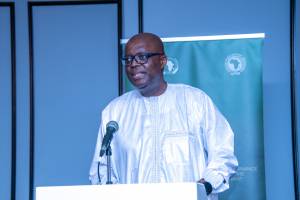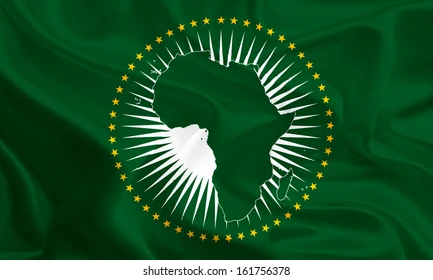OP-ED | Reflections on Unconstitutional Changes of Government in Africa, By Eddy Maloka
To address the spate of Unconstitutional Changes of Government in Africa (UCG), Eddy Maloka recommends strengthening of African Union’s normative framework on UCG and reinforcement of its response to unconstitutional transitions, as stipulated in the Lomé Declaration.

Africa has recently grappled with a resurgence of Unconstitutional Changes of Government (UCG), a huge drawback to the continent’s third wave of democratization and efforts to entrench constitutional governance systems that started in the 1990s. This has led to many questions as to the effectiveness or otherwise of regional mechanisms and normative frameworks in stemming the tide of unconstitutional power shifts across our beloved continent.
To this end, there are two major questions begging for our answers. First, how do we strengthen the AU’s regional normative framework on UCG? Second, what do we have to do to reinforce the regional response to unconstitutional power shifts through the AU Peace and Security Council (PSC), in joint coordination with other mechanisms, as stipulated in the Lomé Declaration on the Principles Governing Democratic Elections in Africa?
Moreover, we need to commence conversations on how to give teeth to the African Charter on Democracy, Elections and Governance (ACDEG). In this direction, we have to consider the necessity or otherwise of an additional Protocol to ACDEG. For sure, the Democracy Charter is currently not owned by our Member States, and this is not unrelated to how it entered into force, as per the Charter’s Article 48: “This Charter shall enter into force thirty (30) days after the deposit of fifteen (15) Instruments of Ratification.”
An alternative to an additional Protocol to ACDEG could be an amendment to the Charter itself, in accordance with its Article 50 (4): “The Assembly shall adopt amendments or revisions by consensus or failing which, by two-thirds majority and Article 50 (5): The amendments or revisions shall enter into force when approved by two-thirds majority of State Parties.”
I am of the opinion that an additional Protocol is akin to adding another language to a regional jurisprudence that is already a Tower of Babel of legal instruments. Since we have a convoluted regional legal jurisprudence with two founding documents—the Abuja Treaty and the AU Constitutive Act—running concurrently, I believe an amendment route is much better. Indeed, the two-thirds majority requirement presents an opportunity for us to re-engage our Member States much more seriously about ACDEG.
In this regard, I wish to make the following recommendations. Firstly, we need to ensure Member States domesticate all regional commitments, or rather, AU normative frameworks, in relation to UCG. Currently, we rely on a simple system of ratification or merely on the adoption of our normative instruments by the AU Assembly as a prerequisite for their entry into force. We therefore need to raise the bar on domestication of regional commitments through national legislation, which will empower national actors and mechanisms to act, as in the case of an International Criminal Court (ICC) arrest warrant.
Also, we have to find a balanced way of bringing external and non-African elements into our affairs without necessarily marginalising an equally important question: that of African agency in international relations. We can’t rule out the possibility of an external hand in the recent cases of unconstitutional changes of government in Africa. If this is the case, our solution cannot be complete without considering the external dimension of these uncalled-for power shifts.
At the African Peer Review Mechanism (APRM), we have dedicated the third edition of the Africa Governance Report (AGR3) to the critically important topic of unconstitutional changes of government in Africa.
Prof Eddy Maloka is the CEO of the African Peer Review Mechanism (APRM). This article was adapted from a speech delivered at the 16th Extraordinary Session of the Assembly of the African Union held on May 28, 2022, in Malabo, Equatorial Guinea.

















